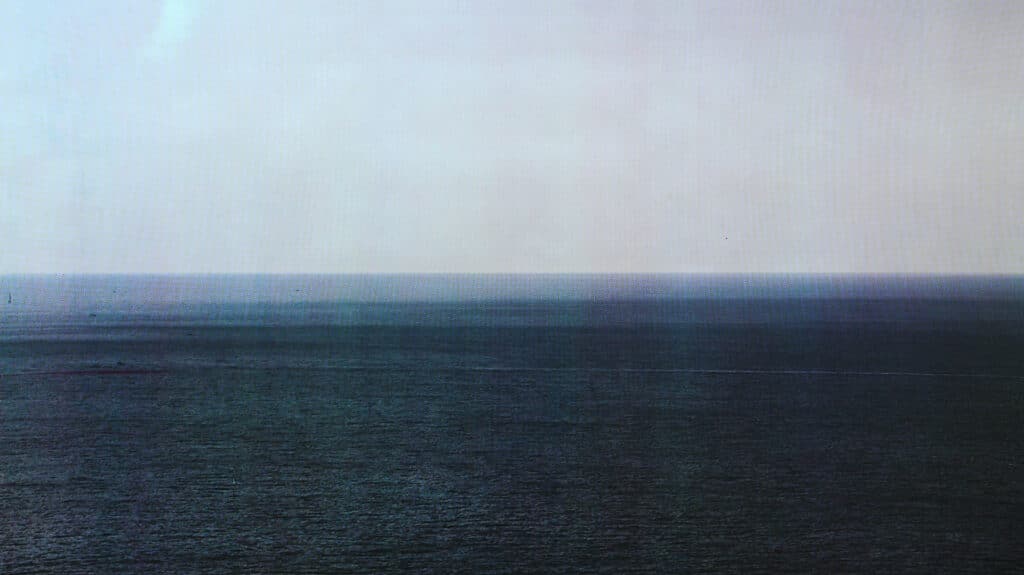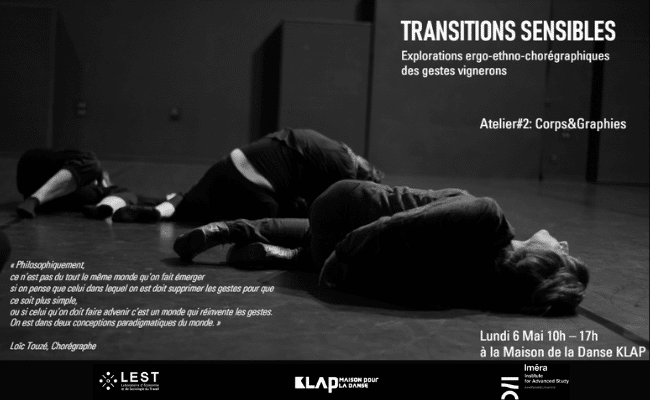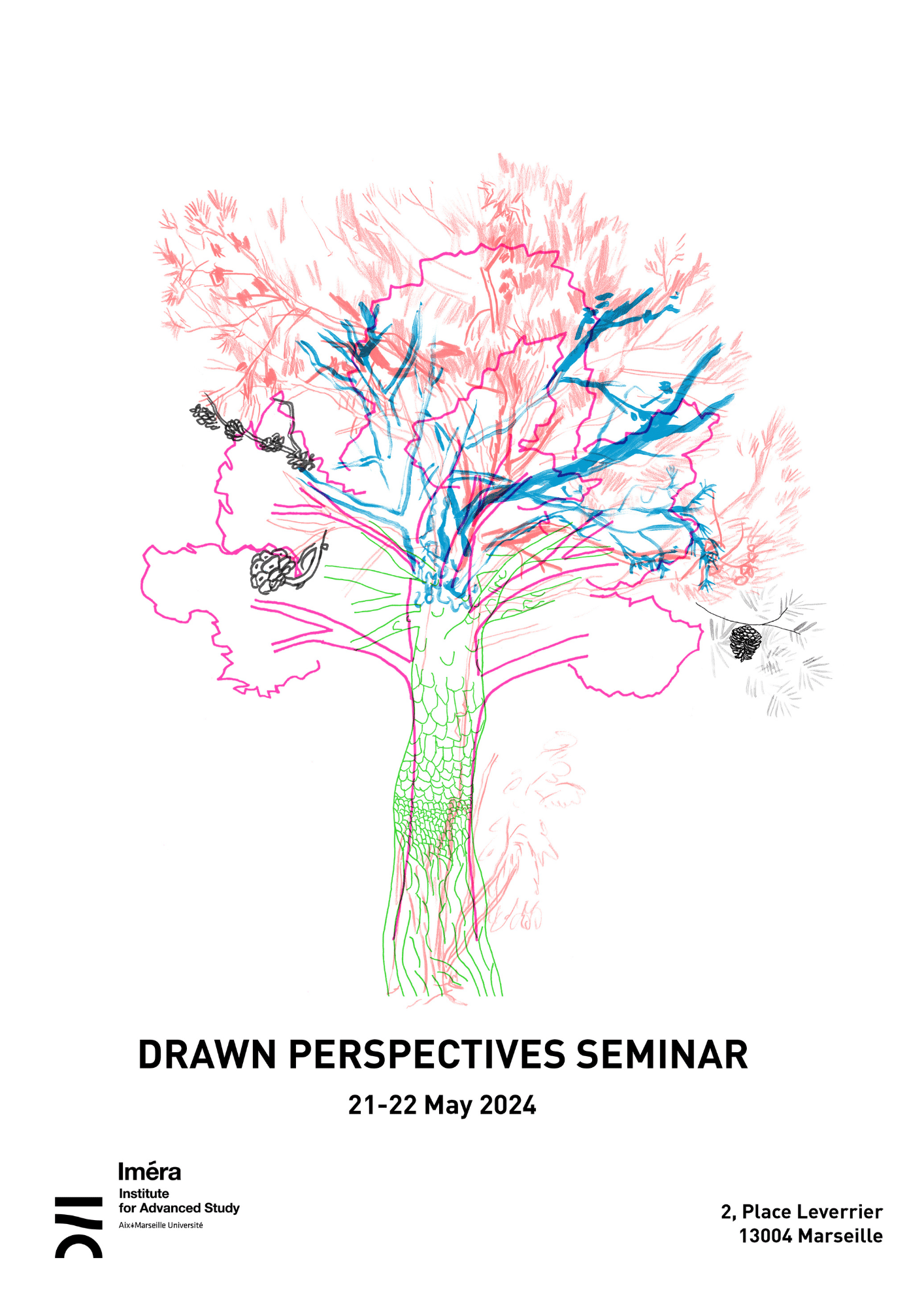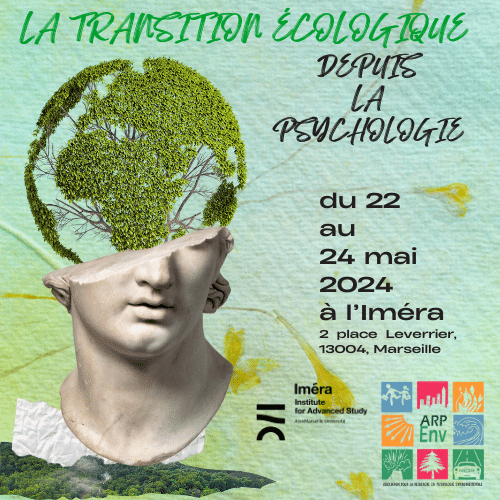The Mozambique Channel and the Mediterranean Sea are two marine graveyards where tens of thousands of dead and missing bodies lie. How can we talk about these deaths and disappearances? How can we pay tribute to them? How can we prevent shipwrecks? This meeting will bring together musicians, writers, and representatives of humanitarian associations who will present the aesthetic and activist choices that have shaped their description of this deadly reality.
Meeting organized in co-partnership with SOS Méditerranée and l’école des hautes études en sciences sociales (EHESS).
Registration is mandatory: https://www.billetweb.fr/pro/turbulence

Voiceless Exiles: Deaths and Disappearances in the Mozambique Channel and the Mediterranean
Friday, June 30, 2023 – 2-6pm – Turbulence Building, Aix-Marseille University (3 place Victor Hugo 13003 Marseille)
The Mozambique Channel and the Mediterranean Sea are two marine graveyards where tens of thousands of dead and missing bodies lie. How can we talk about these deaths and disappearances? How can we pay tribute to them? How can we prevent shipwrecks?
While the Mediterranean context is well-known, this is not the case of the Mozambique Channel. Both invisibilized and under-studied, shipwrecks in the Comoros archipelago are portrayed by writers and singer-songwriters.
“Voiceless Exiles: Deaths and Disappearances in the Mozambique Channel and the Mediterranean” is the first literary, musical, and activist meeting that, by focusing on the Mozambique Channel, aims to trace the transformation of these maritime spaces, which were originally places of intellectual, cultural, religious, and commercial exchanges, into mass graves. Writers, singer-songwriters, and representatives of humanitarian associations will present the aesthetic and activist choices that have guided their expression of this deadly reality.
Registration is mandatory: https://www.billetweb.fr/pro/turbulence
- Eliane Aberdam, professor of music and composition at the University of Rhode Island;
- Sophie Beau, director of SOS Méditerranée;
- Nassuf Djailani, writer;
- Pauline Le Liard, lawyer and former project manager at La Cimade Mayotte;
- Constance Moréteau, academic coordinator at Iméra;
- Ben Amir Saadi, journalist;
- Amahada Smis, author, composer and slam poet;
- M’baé “Soly” Mohamed, author, composer and slam poet;
- Ali Zamir, writer.
The meeting will be organized around 20-minute presentations and discussions as follows:
- Introduction: Catherine Benoît, EHESS/Iméra Chair in Transregional Studies.
- Sophie Beau and Pauline Le Liard for a presentation of the actions of SOS Méditerranée and La Cimade.
- Nassuf Djailani and Ali Zamir, writers; M’baé “Soly” Mohamed and Amahada Smis, author composers.
By reciting excerpts of their texts, writers and author-composers will focus on presenting the aesthetic, artistic, and political choices that led them to develop literary or musical works on shipwrecks, the dead and missing in the Mozambique channel.
The discussants will be Ben Amir Saadi, journalist; Eliane Aberdam, professor of music and composition; Constance Moréteau, academic coordinator at Iméra.
Catherine Benoît,
is a professor of anthropology (Connecticut College, United States), currently in residence at Iméra, holding the EHESS/Iméra Chair in Transregional Studies (2022-23). The objective of her research at the Institute for Advanced Studies at Aix-Marseille University is an editorial project that will analyze the two maritime cemeteries of the Mozambique Channel and the Mediterranean as legacies of French colonialism in the Indian Ocean region.
Her research project at IEA Aix-Marseille University can be consulted on her resident page.
Éliane Aberdam
Éliane Aberdam has been teaching composition and theory at the University of Rhode Island since 2001. She studied composition at the Rubin Academy in Jerusalem (BM 1987). In 1989, she entered the graduate composition program at the University of Pennsylvania, PA, and in
1992, at the University of Berkeley, CA, where she received her Ph.D. in composition in 1998. In 1995, she was selected by IRCAM for the annual course in electronic music and composed her first electro-acoustic work, PaRDeS. In 2000, she received a commission from the Ensemble intercontemporain for Quoi? Ce point (based on Primo Levi’s The Periodic Table).
Aberdam composes for orchestra, choir, chamber music, electronic music, and solo. She has written three operas and several orchestral works, all on the theme of environmental or social justice. Her choral piece Door focuses on refugees and exiles throughout the ages.
Before coming to Marseille, Aberdam will be in Ukraine for the world premiere of her violin concerto: “In Memoriam: for the Ukrainian Fighters, Hope, Fallen Ones,” which will be performed on June 23 by the Kiev Philharmonic Orchestra.
Website with composition excerpts: https://composer.aberdam.com/
Sophie BEAU
Sophie BEAU is the co-founder of the european association for sea rescue SOS MEDITERRANEE. She is the executive director of the french branch of the association, and vice president of the european network of SOS MEDITERRANEE.
Holding a Master’s degree in anthropology and a third cycle diploma in Political Sciences, she has been managing social and humanitarian programs for the last 20 years. She has worked as programs manager for Médecins Sans Frontières and Médecins du Monde on many crisis zones in Africa, in the Middle East and the Caucasian region, as well as in the headquarters of these NGOs in France, Holland and the United States. She has also managed medico-social teams and assisted actors of the fight against exclusion in France (associations, fondations and local authorities) as part of the National Federation of Social Reintegration Association (now FAS) and as a consultant.
Co-founder of the association SOS MEDITERRANEE in may 2015 with german
captain of merchant navy Klaus VOGEL, she is the executive director of the association in France, and vice president of the european network, composed of 4 associations (in Germany, France, Italy and Switzerland) .
The french association, based in Marseille, hires around 30 staff members, and extends through 17 outposts and 650 volunteers through France.
Laurann Clément
Laurann Clément holds a master’s degree in sociolinguistics of French as a Foreign Language (FLE) and from 2021 until early 2023, she held the position of director of the Alliance Française in Ndzwani, Comoros.
Laurann embodies an unusual blend of literary skills, historical knowledge, and social sensitivity. Her journey in several African countries (Morocco, Senegal, DRC, Ethiopia, etc.) has allowed her to put her passions and convictions into practice by actively collaborating to work for and with the communities she has had the opportunity to interact with.
Laurann also has experience as a journalist and has worked with the newspaper “Le Monde” and “TV5,” which has enabled her to shed light on the realities, challenges, and successes of marginalized populations, amplifying their voices and sharing their stories with a wider audience.
Nassuf Djailani
Nassuf Djailani was born in Mayotte. He grew up in the midst of the Qâdri and Chadhuli brotherhoods, frequented by his grandparents, who passed on to him a passion for poetry and a cultural heritage that permeates his literary work, composed of texts that are both tender and critical of Mahoran, Comorian, and Indian Ocean society, which he observes with lucidity. Nassuf writes and publishes in French and Kibushy (Mayotte’s spoken Malagasy).
As a poet, novelist, and playwright, his texts have received numerous literary awards. He also collaborates with literary journals in France (including L’Encrier Renversé, Riveneuve Continents, Ubu Théâtre scène d’Europe, and Carnavalesques4) and abroad, such as Interculturel francophonie (Italy), Lettres de Lémurie (Madagascar), and Samtiden (Norway).
As the editor-in-chief of the literary journal PROJECT-ÎLES, he is also an associated author of the theater company AriArt in Mayotte. As a journalist, he was awarded the Prix Bayard young journalist award in 2005.
He was honored as a Knight of Arts and Letters in 2012 by the Minister of Culture.
Website with a list of works: http://ile-en-ile.org/djailani/
Pauline Le Liard
Pauline Le Liard is a lawyer who has worked for several years in Mayotte within different associative structures defending the dignity and rights of foreign individuals. In recent years, she has focused on documenting the derogatory regime implemented in Mayotte and its direct consequences on people’s rights, as well as the increasing number of arbitrary and illegal administrative practices. Since 2019, she has been involved in a project led by La Cimade and the Maeecha association in the Comoros archipelago, addressing the issue of migrants who have died or gone missing during their journey.
Link to the article DIESES: https://dieses.fr/etiquette/mayotte
Constance Moréteau
Constance Moréteau holds a Ph.D. in Contemporary Art History from the University of Nanterre, where she defended a thesis on books and reading in installations and exhibition devices from 1960 to the present day. In both American and French contexts, she has taught art history, design, and cultural policy at a higher art school and university. She subsequently worked in several foundations where she was responsible for research support programs and programming scientific events in the field of art history and interdisciplinary research. She is now the scientific coordinator at Iméra and is also in charge of developing the arts and sciences axis.
Ben Amir Saadi
Ben Amir Saadi has a background in computer engineering and journalism. He describes himself as an entrepreneur-activist at heart. He has created several companies aiming to establish a connection between the Comorian diaspora and the Comoros archipelago. In 1999, he founded COMORES MAG, the first Comorian news magazine, a monthly publication with the objective of covering the country’s current events as well as the achievements of individuals from the archipelago.
Ben Amir Saadi is also involved in several movements denouncing the French presence in Mayotte and advocating for the territorial integrity of the Comoros, including the four islands: Ngazidja, Mwali, Ndzuani, and Maore.
In 2012, he took on the role of General Manager of the Comoros national football team and worked diligently to promote its reputation on the African continent.
Convinced that everyone has a role to play in building a better world, Ben Amir Saadi strives, in his own way, to build bridges, defend the values that are dear to him, and share his knowledge.
Ahamada Smis
Immersed in hip-hop culture since the early 90s, Ahamada Smis has embraced it while incorporating the essence of his Comorian and African roots. Emerging from the world of slam poetry, Ahamada fully transitioned into a singer with his album “Air”. Ahamada Smis brings together rhythms from the Indian Ocean, weaving vibrant melodies with meticulous verses that convey soothing messages or uncompromising observations.
In 2022, he created “Sabena,” co-produced by the Mucem and the Marseille Festival. This performance combines contemporary and traditional sounds, video creations, and contemporary dance, while recounting an episode from the history of the Comoros. Ahamada pays tribute to the survivors of the Sabena tragedy through poetic and heartfelt slam.
Website with a list of works: https://www.colomberecords.com/
M’baé Soly
M’baé Tahamida Mohamed, known as Soly, is an author, composer, and slam artist, and one of the pioneers of hip-hop culture in Marseille. With his group B.VICE, he has accompanied generations of artists (such as Psy 4 De La Rime (Soprano, Alonzo, Vincenzo), Algérino, Kenza Farah, Donkichoc, etc.) through the Sound Musical School B.VICE association, founded in 1991 in La Savine, in the northern neighborhoods of Marseille. When the group disbanded in 1998, Soly continued to put his heartfelt emotions into words and write poetry, as well as lead writing and music workshops.
Being sensitive to social and humanitarian causes, he has always used his art to promote prevention, awareness, and solidarity, particularly through the composition of musical pieces and the staging of his texts. This has led him to regularly develop intercultural and intergenerational projects centered around memory and roots, using singing, slam poetry, and poetry to build bridges not only between artistic disciplines but also between cultures and communities.
http://mtsoly.over-blog.com/
https://www.facebook.com/solyblock?ref=hl
https://soundcloud.com/mtsoly
SOS Méditerannée
SOS MEDITERRANEE
Thousands of lives saved at sea
Since 2014, over 26,000 people have died attempting to cross the Mediterranean on makeshift vessels, not counting those who disappeared without witnesses. The majority of these women, men, and children were trying to escape an unbearable situation in Libya, making the Central Mediterranean the deadliest migration route in the world.
It was based on a movement of European citizens determined to act in the face of this tragedy of repeated shipwrecks at sea that SOS MEDITERRANEE was created in 2015.
Convinced that it is unacceptable to let thousands of people drown before our eyes at Europe’s doorstep, the association continues its fight to save lives at sea, protect and care for the rescued individuals on board, and bear witness to the public about this tragedy.
Thanks to an exceptional mobilization of European civil society, SOS MEDITERRANEE carries out rescue operations in international waters off the Libyan coast. Associations have been created in France, Germany, Italy, and Switzerland to support this tremendous wave of solidarity, which continues to grow.
With the Aquarius and then the Ocean Viking, SOS MEDITERRANEE’s search and rescue teams have been able to rescue, receive, and provide medical care to over 37,000 people since the beginning of operations in February 2016. Among them, one-fourth of the survivors were minors, with over 80% of them being unaccompanied. Fifteen percent were women. All our operations are carried out in strict compliance with international maritime law and in constant coordination with the competent maritime rescue coordination authorities.
SOS MEDITERRANEE relies on the generosity of the public to finance the lease of a rescue vessel like the Ocean Viking, capable of navigating both in winter and summer, its crew, fuel, and all the necessary equipment to take care of the survivors. We appeal for support and mobilization from all stakeholders in civil society: individuals, NGOs, foundations, patrons, businesses, and public authorities, in order to provide the means to continue its rescue mission in this vast distress zone for thousands of women, men, and children.
#AmbulanceShip #TogetherForRescue #AnswerThisSOS Twitter: @SOSMedFrance Facebook: @sosmedfrance Instagram: sosmediterranee_france Website: www.sosmediterranee.fr
Reference mortality: https://missingmigrants.iom.int/region/mediterranean
EHESS
The School for Advanced Studies in the Social Sciences (École des hautes études en sciences sociales or EHESS) brings together researchers and students from around the world with the aim of fostering cooperation among all disciplines of social sciences to understand societies in their complexity. It is unique in the French academic field both in terms of its intellectual project and its model of research-based education, its international connections, and its engagement with society.



